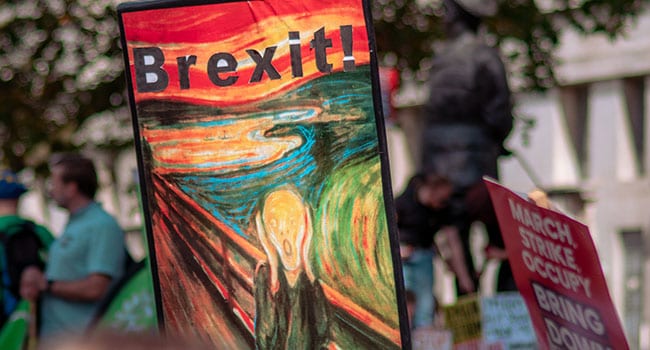 If Brexit happens and has the unintended consequence of facilitating Scottish independence and Irish unification (picking up where last week’s column left off), what would that mean for various groups?
If Brexit happens and has the unintended consequence of facilitating Scottish independence and Irish unification (picking up where last week’s column left off), what would that mean for various groups?
For Scottish unionists, leaving the United Kingdom would certainly be a major psychological wrench.
Unlike, say, the former states of Yugoslavia and Czechoslovakia – both unnatural concoctions created in the First World War’s aftermath – the U.K. has been relatively sturdy and durable. Scotland and England have been formally united for over 300 years and – under the Union of the Crowns – informally for a century before that.
And while an independent Scotland might retain the Crown for purposes of continuity, it would have to switch currencies to join the European Union. It would be goodbye pound sterling, hello euro.
Scottish nationalists, of course, would be ecstatic. Or at least they would be for a while. But should an independent Scotland run into economic difficulty, it would discover that the European Central Bank can be a hard taskmaster for small countries.
Unionists in Northern Ireland would also feel a material sense of loss. For more than 400 years, they’ve cherished an identity rooted in links to the British mainland. It’s a history nurtured by a range of emotions.
As noted last week, politics in Northern Ireland is substantially delineated along religious lines. Protestants tend to be unionists who cherish being part of the U.K., while Catholics tend to be nationalists seeking unification with the Republic of Ireland.
Irish historian Marianne Elliott has written about origin myths, loosely defined as the popular traditions or beliefs that groups have about the past. Generally based on a reading of history – albeit often a tendentiously selective one – these myths can be both positive and negative. Positively, they can create a cohesive sense of community; negatively, they can generate fear and resentment.
For Protestants in Northern Ireland, their origin myth has two components that don’t inspire trust. Quite the contrary.
One component is a feeling of being surrounded by enemies with a propensity to inflict harm. Call it a sense of endangerment.
The other component is a deep antipathy to the institution of the papacy. Harking back to an earlier time, the papacy is viewed as an essentially malign foreign power that has first dibs on the loyalty of Catholics.
Taken together, these two strands create a mindset characterized by a deep foreboding of any unification with the (predominantly Catholic) Republic of Ireland. In addition to losing the British dimension of their identity, unionists would be entering into a political environment numerically dominated by their historic enemies.
The 21st century reality, though, is more mixed than the origin myth suggests.
Yes, the historic link with the U.K. would be sundered. But the entity Protestant unionists would be joining is qualitatively different from what it was not so long ago.
Rather than being relatively poor, the Republic of Ireland is relatively affluent. And it’s no longer a state with an aggressively Catholic public ethos. Over the last generation, it’s morphed into a secular society, a place where Catholicism is increasingly nominal. From being a socially conservative outlier, it’s migrated to standard European liberalism.
Irish nationalists – north and south – would undoubtedly rejoice at unification. A cousin of mine emotionally described it a couple of months ago as something he’d never have considered a realistic possibility. It was certainly the overriding aspiration in the nationalist Ireland I grew up in.
Mind you, there’d also be complications.
The injection of unionists would shift the Republic’s internal balance of power. Some parties in a unified Ireland would find themselves less favourably positioned than currently, which wouldn’t make them or their devoted adherents particularly happy.
There’d also be the matter of money. London currently provides a subvention to Northern Ireland, so presumably Dublin would need to step in with a financial replacement in order to sustain services at the accustomed level.
Finally, how would the English react?
My guess is that most people wouldn’t mind very much. Scotland and Northern Ireland don’t loom large in 21st century English identity and any sense of loss would quickly dissipate.
Besides, English Conservatives would rapidly discover that, with Scotland gone, winning elections had become easier. Self interest can be a great salve for hurt feelings.
Troy Media columnist Pat Murphy casts a history buff’s eye at the goings-on in our world. Never cynical – well perhaps a little bit.
The views, opinions and positions expressed by columnists and contributors are the author’s alone. They do not inherently or expressly reflect the views, opinions and/or positions of our publication.

